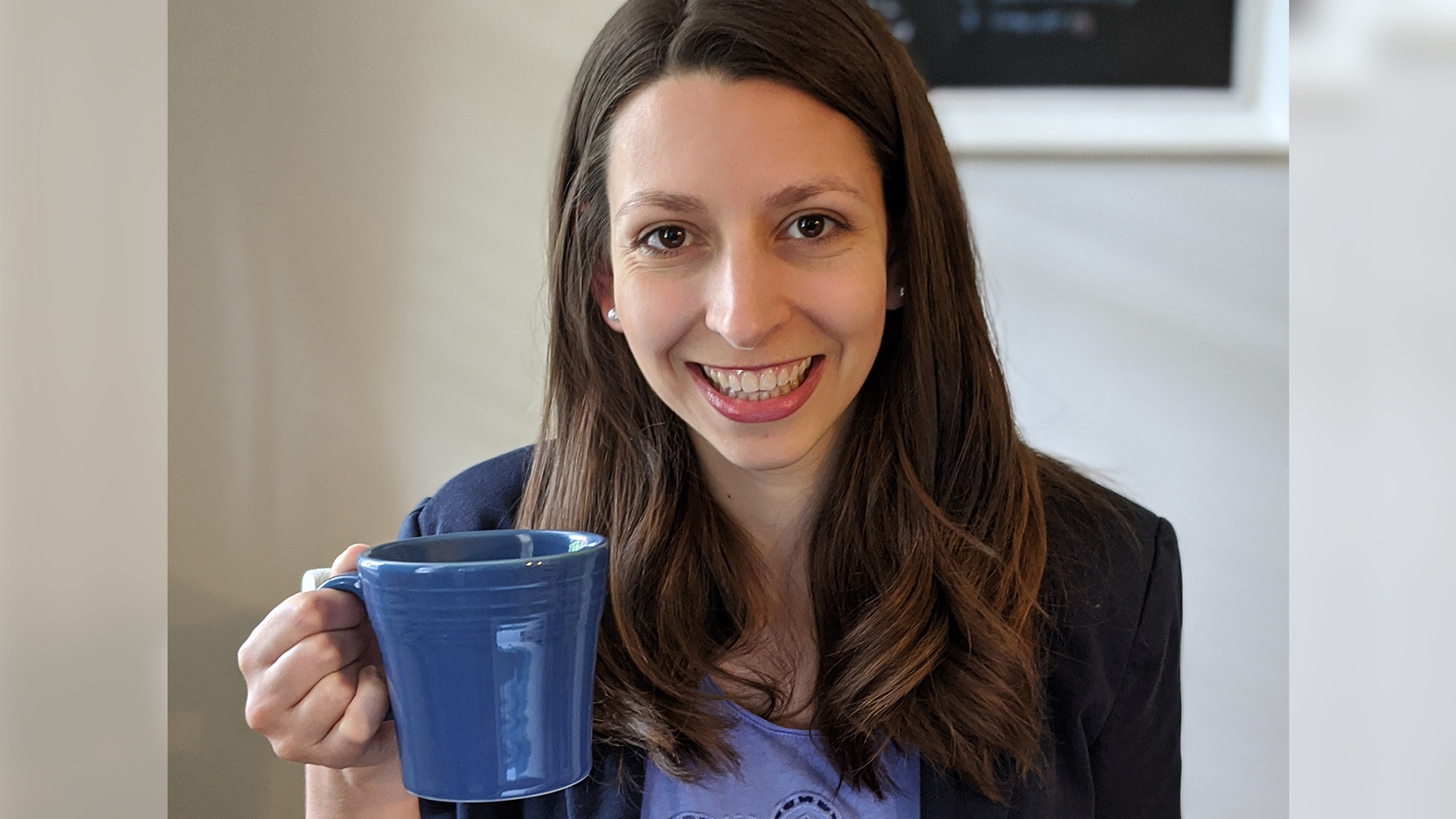When Sarah Lasseter (’11 UNC-BEST, ’20 MEITE) was applying for high school science teaching jobs in 2013, one interview also came with a request for her to create a video for the ninth-grade biology class she would be teaching.
Flipped classrooms — which utilize instructional materials such as videos outside of class so time inside the classroom can focus on incorporating the ideas learned in those materials — were at the core of instruction at Research Triangle High School, the charter school in Research Triangle Park where Lasseter had applied and has been teaching ever since. But in 2013, she had never created a video.
“I was terrified,” said Lasseter, an August 2020 graduate of the UNC School of Education’s Master of Arts in Educational Innovation, Technology, and Entrepreneurship (MEITE) program.
She had spent the past two years in the Peace Corps, teaching in a remote area of West Africa. Technology was nonexistent. She taught lecture-style with a chalkboard. An internet connection — therefore, applying to the job at Research Triangle High School — meant riding in a crowded taxi that only left twice a week to the regional capital in Guinea two hours away.
“That video — it’s funny and still up on YouTube — is me in my house in Africa,” she said. “There are chickens in the background, and I’m talking about fermentation. It’s very ridiculous, but it got me the job. And that’s when I really started to fall in love with making videos to incorporate into my teaching.”
Today, Lasseter uses videos to convey complex science ideas to her students are frequent and invaluable. She has presented at conferences on the subject, and through the MEITE program, has created a platform she hopes can help fellow high school science teachers searching the internet for high-quality videos.
Not ready to leave teaching
When Lasseter found the MEITE program, she had wanted to explore her professional development options. Creating videos and using technology in her classes had provided some experience with edtech. She wanted to learn more about how she could better serve her students.
“I wasn’t quite ready to move on to something else,” she said. “I loved teaching. I’m still not quite ready to move onto something else. I love being hands-on with students and getting immediate feedback with the videos I create and the teaching I do.”
The program’s part-time option meant she could continue to teach while learning the educational theory and research, innovation and entrepreneurial mindsets that would enable her to push educational technology forward at both the business and classroom levels.
While in the program, she generated an idea for and developed an online course in advanced research for her high school students. The course’s content focuses on teaching research skills — how to read scientific literature, how to write a literature review, and understanding charts and graphs, among other topics — to students who might want to pursue working in a lab or an internship when they get to college. It’s content that doesn’t fit within standard science courses, but gives students the chance to explore the information asynchronously online for credit.
For Lasseter’s internship, a requirement of the program, MEITE Program Director Todd Cherner connected her with Rashmi Rogers at Monkeys and Bears, a small edtech startup in Herndon, Virginia.
Lasseter could work remotely outside of her teaching day to help direct the company’s main product, Emotionary, an app that focuses on social-emotional learning and enables users to track their daily emotions and then gain insights. The close-knit company provided her an up-close, hands-on view of startups and businesses. She’s learned about user experience and product development.
At the conclusion of the internship, Lasseter said the company asked her to stay on part-time to continue helping to push Emotionary forward.
Looking toward the future
“I did not start the program thinking that I wanted to start a business or create a startup,” she said. “That was not my goal, but there’s been a lot of change in my attitude toward that as I’ve spent more time in the program, which has been fun.”
This past summer, at the conclusion of her time in the MEITE program, Lasseter pitched STEM Video Cafe as part of the annual MEITE Pitch Day. STEM Video Cafe, an idea developed out of Lasseter’s own experiences and based on user interviews, aggregates the best science videos from across the internet. Teachers will no longer have to scour the internet for videos they can incorporate into their classes. STEM Video Cafe puts them in a single place — and also offers digital professional development tools.
With the arrival of COVID-19, Lasseter said a site like this is more important than ever for high schoolers learning science, and she is optimistic that STEM Video Cafe has a future as a business.
As Lasseter is still not ready to leave teaching, she does know she can make a positive impact within classrooms from the outside. The MEITE program has helped her to see new possibilities for her career in education.
